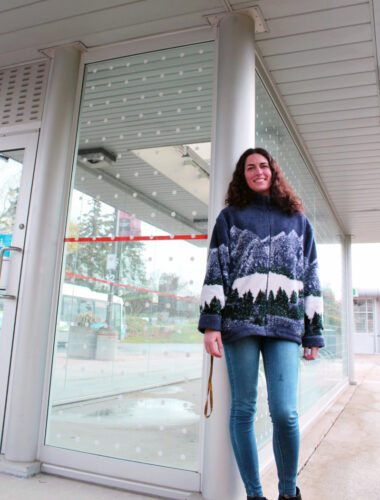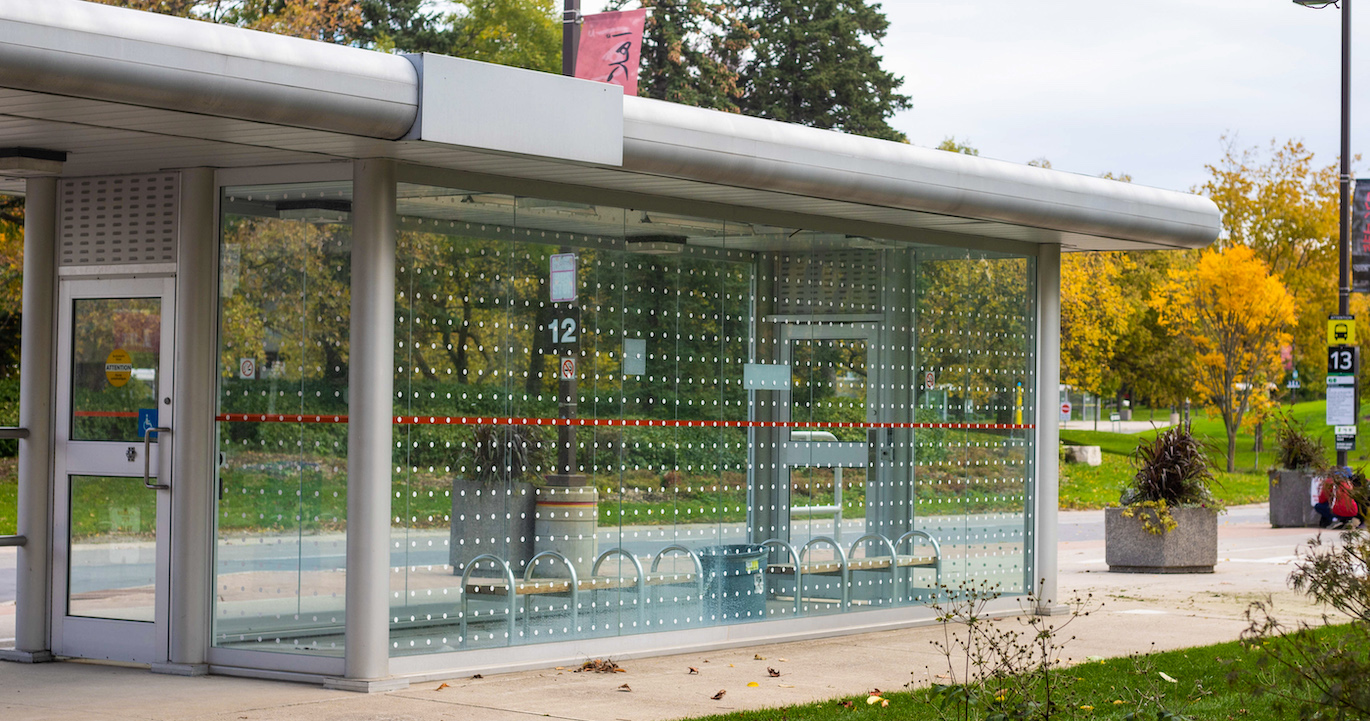
University of Guelph volunteers and staff are working to protect birds flying through campus from hitting windows by making the glass more visible.
Bird Safe Guelph is behind the project, an organization made up of U of G students and staff dedicated to helping local birds survive.
“We’ve been raising awareness in the area about the hazards that windows can pose to birds,” said Hayley Wilson, a biology PhD student in the College of Biological Science who leads Bird Safe Guelph.
Every year, millions of birds in Canada die or are injured in window collisions. The problem can be worse in leafy landscapes such as the U of G campus, where many trees attract hundreds of native and migratory birds.
“Guelph is actually on a main migration flyway, which means there are many birds flying through in the spring and fall,” said Wilson, who studies songbird physiology and fitness in the Department of Integrative Biology.
The team spent the past year sending kits to local homeowners to make their windows more visible to birds and helped organize a bird-safe window mural on the windows of Guelph City Hall.
This year, they have focused on the University campus, starting with the bus shelters on the campus bus loop.
White dots on windows designed to interfere with reflections

“We had been hearing reports of birds colliding with the glass of the bus shelters,” said Wilson. “So, we contacted the U of G sustainability office, who helped connect us with the physical resources department. They agreed to help us launch a pilot project to place window films on the shelters.”
Symmetrically spaced white dots placed along the shelter windows are designed to interfere with the reflections that can make windows look invisible to birds or reflect the nearby landscapes like mirrors.
Since the installation of the window films on campus bus shelters, the University has taken Bird Safe Guelph’s mission a step further.
“Bird Safe Guelph played an instrumental role in identifying this problem, educating physical resources staff on why it is an important issue to our community, and presented a range of possible immediate and long-term solutions,” said Brandon Raco, manager of U of G’s Office of Sustainability.
Updating Building Design Standards
One of those solutions was to update the University’s building design standards to incorporate bird safety. Those new standards are due to be implemented in 2022 and will ensure that any new campus buildings or major renovation include windows that conform to Canadian Standards Association (CSA) Bird Friendly Building Design standard.
For existing buildings, Wilson is recruiting Bird Safe Guelph volunteers to launch a collision monitoring program in the spring to determine where other bird-window collisions might be happening.
“That will help us put together an action plan to retrofit the highest-risk windows on campus,” said Wilson. “The types of windows that tend to cause the most problems are large windows at tree height that reflect greenery and make birds think they can fly right through.”
They aim to pinpoint the biggest problem areas so those can be prioritized for changes.
“To make real progress on advancing campus sustainability and climate action, we need to collaborate with those who can identify the problems we’re experiencing and articulate the right solutions,” said Raco.
“Being able to take Hayley’s expertise on birds and apply it to campus has been a great experience. There’s been such a strong spirit of collaboration with all involved that I hope we can foster more of as we look to the future.”
Contact:
Brandon Raco
sustainability@uoguelph.ca
